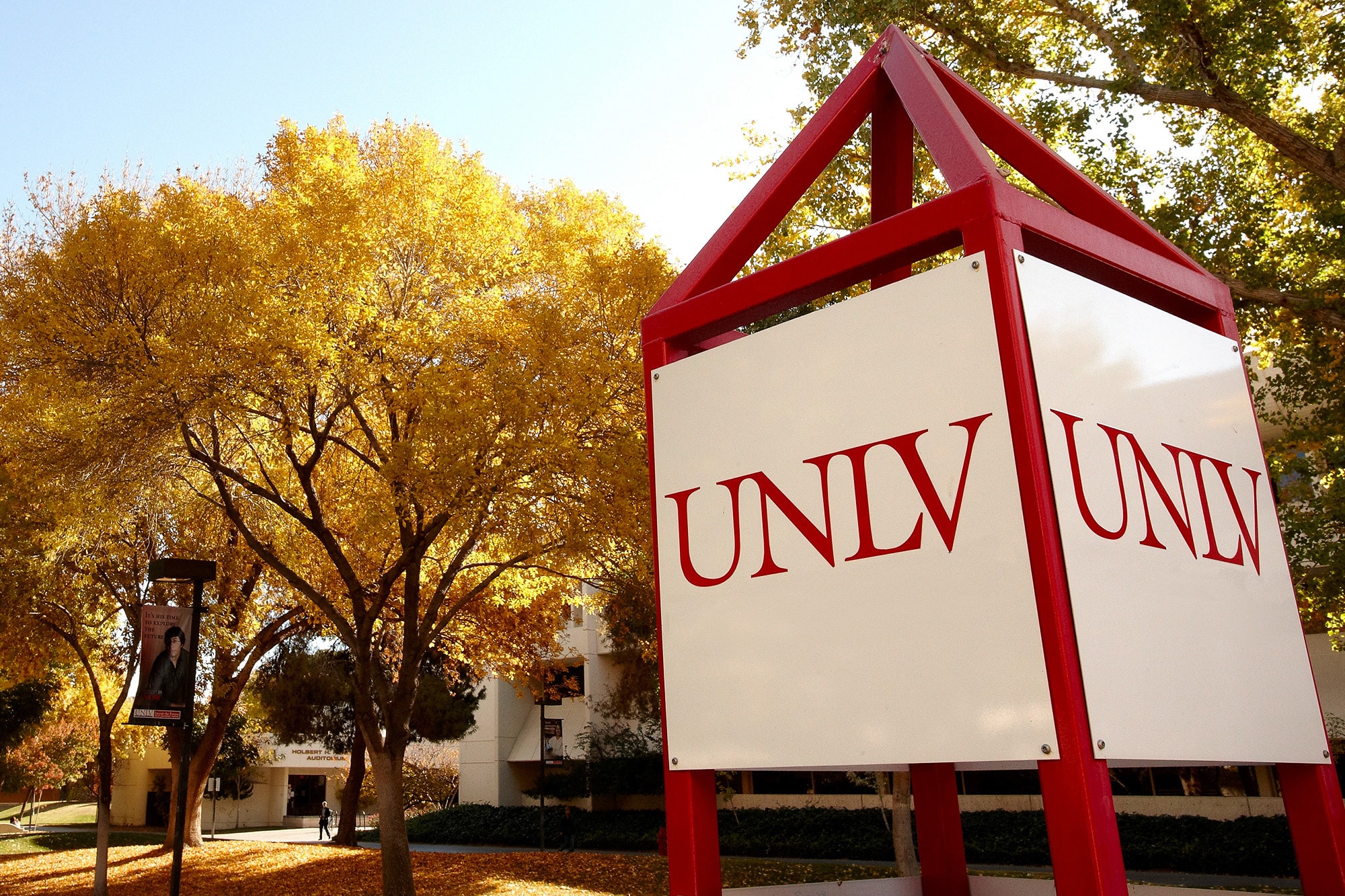UNLV will take a leading role in a $20 million research project that will enhance solar energy technology and advance understanding of the connection between solar energy, water, and the environment in Nevada.
Over the course of the five-year grant, UNLV will receive $7.4 million to lead the solar energy and water components of the research project. The rest of the funding will go to the University of Nevada, Reno and the Desert Research Institute.
The project was funded by the National Science Foundation's Experimental Program to Stimulate Competitive Research (EPSCoR) program, whose mission is to assist the NSF in strengthening research and education in science, technology, engineering, and mathematics throughout the United States.
The "Solar Energy-Water-Environment Nexus" project will enhance understanding of the balance among water conservation, the environment, and solar energy by addressing a variety of issues related to large-scale solar installations in arid desert lands. The project will combine research on solar energy generation with the understanding of eco-hydrological impacts of solar installations to advance the economic and eco-friendly viability of solar electricity generation.
"UNLV is pleased to be a part of this project," said UNLV President Neal Smatresk. "We believe Nevada is an ideal location for advancing solar energy, and we are delighted to help develop clean energy technology that will address a variety of environmental concerns. UNLV is at the forefront of interdisciplinary research that can contribute to the economic development of our community and state. This grant demonstrates how competitive we have become in research and how committed we are to educating our workforce, improving the economy of the state, and enhancing the quality of life for all Nevadans."
As a part of the project, the Nevada Environment, Water, and Solar Testing and Research Facility (NEW-STAR) will be established at a site outside Boulder City surrounded by large, commercial solar energy plants in the Eldorado Valley. The new facility will develop engineering/technological solutions to repel arid dust and minimize water usage while examining the desert ecosystem responses. It will then develop mitigation tactics to preserve the environment. Additional experiments will be conducted at other sites in Southern Nevada.
"Our students and faculty will benefit tremendously from this grant," said Thomas Piechota, vice president for research and graduate studies. "A grant of this size brings attention to the quality and competitiveness of our university, but, most importantly, it enables the campus to build its infrastructure and provide resources for research. It's a wonderful opportunity."
The award will increase the ability of Nevada's higher education institutions to conduct research on solar energy generation, its environmental impacts and associated water issues, and to develop new capabilities in cyberinfrastructure that will accelerate the high-speed connectivity within institutions for scientific capabilities. A primary goal will be to initiate collaboration with stakeholders and industry leaders to facilitate more research and development capabilities, technological enhancements, and promote innovation. It will also promote workforce development.
The Nevada EPSCOR office operated through the Nevada System of Higher Education is facilitating this award.
UNLV distinguished mechanical engineering professor Robert Boehm, a veteran of solar energy research and co-principal investigator on the grant, will lead the portion of the project on improving solar energy technology.
"This grant will enable us to build some very important infrastructure that will make us even more competitive in the acquisition of research funding," Boehm said. "The project draws on many strengths already established in Southern Nevada and at UNLV, so we will be in an even better position for future research."
UNLV civil and environmental engineering professor Jacimaria Batista, Boehm's co-PI on the grant and an expert in water research, will lead the portion of the project that focuses on how to conserve water used in solar energy generation.
"With this grant, Nevada has the potential to advance our understanding of the balance among water conservation, the environment, and solar energy," Batista said. "We call this the Solar Energy-Water-Environment nexus. This grant will also generate a future qualified workforce for solar energy development in Nevada, as it includes 18 Ph.D.-level assistantships, as well as research opportunities for undergraduate students in engineering and science."
UNLV faculty from three UNLV colleges will be involved, and the researchers hope to attract several industry collaborators to the project.



